Vol. 22, No. 3 Sponsored by:
We're on Facebook! 662 members and counting... Lubbock, TX -- Howdy from Texas! Welcome to the convention issue of the Gatekeeper! It is that exciting time of the year again! I can't believe we are less than two weeks away from the 103rd annual convention of NCA in my hometown of Dallas, Texas! This year again we have an exciting line-up of convention presentations. I would encourage you to attend as many MCD sessions as you can. Of these sessions, I would recommend that you please attend the following three events which happen on Saturday, November 18:
As I near the end of my term as MCD division Chair, I would like to express my heartfelt thanks to all the MCD officers. In particular, I would like to express my gratitude to the members of the MCD Research Committee, particularly: Tracy Worrell, Nicole Martins, and Jessica Gall-Myrick. They have worked hard to put together an amazing line-up of sessions. I would also like to thank my Vice Chair, Meghan Sanders, for her work on the panel sessions and Vice-Chair Elect Lissa Behm-Morawitz for her work on the MCD awards. Also, I would like to thank Zac Gershberg (our Publications & Web Editor). He has done a fantastic job with our site, newletters, and interviews! Thank you so much!! I wish to thank Sumana Chattopadhyay, our past Chair, for helping me with much needed guidance and information through the last year. Thank you, Anji Phillips, for being an outstanding secretary! You have kept this division so organized. Thank you to our graduate student representative, Arienne Ferchaud. You have come up with so many great ideas to help graduate students in our division. A big thank you to Valerie Kretz for being the chair of our nominations committee. Thank you so much for all your insights! I must thank Shane Tipton for serving on NCA Nominations Committee & Interest Group Parliamentarian. Lastly, I want to thank Stan Tickton and Omotayo Banjos for being on Legislative Assembly. Every officer is so instrumental to MCD! Thank you to all the officers and to all the members for a fantastic year. I look forward to seeing y'all in Texas! Safe travels to all of you! Wishing you all happiness,
Editor's NotePocatello, ID -- Please enjoy reading through this new issue of The Gatekeeper. Below you'll find a Gatekeeper Scholar Chat with Dr. Andrew Billings from the University of Alabama. His work focuses on sport communication, popular culture, and mass communication. I'd like to thank Narissra for a great year as chair of our division. The interviews we've been able to conduct this year have been fantastic, and she deserves credit for directing me to smart, engaging people. Have a safe and productive convention! All the Best,
<<back to top>> AnnouncementsMass Communication Division ElectionsThe Nominating Committee of the Mass Communication Division is pleased to announce the following slate of nominees for our upcoming elections: Vice-Chair Officer Elect
Secretary Elect
Second Vice-Chair Elect Officer of the Research Committee
Graduate Student Representative
Nominating Committee (2 positions)
Representative to the NCA Nominating Committee
No nominations for these roles have been received: Representative to the Legislative Assembly Additional nominations will be accepted from the floor during our business meeting in Dallas on Saturday, November 18 from 12:30 p.m to 1:45 p.m. at the Sheraton, Majestic 5. Reviewer Recruitment Survey: https://pennstate.qualtrics.com/jfe/form/SV_9KTSthGnEahSWRTThe NCA Mass Communication Division needs your assistance in the division's program planning for the 2018 annual meeting in Salt Lake City. As one of the largest divisions of NCA, we expect to receive a high volume of submissions this year. We kindly ask that you volunteer to review papers. This survey is designed to serve YOU by identifying potential reviewers best matched with submissions. The entire survey should take less than two minutes. Thank you in advance for your cooperation. We greatly appreciate your dedication to the division and your willingness to serve. NCA's Mass Communication Division Top PapersUniversal Engagement: Fandom and Need Satisfaction in Videogame-to-Film Transmedia Experiences Media franchises commonly produce transmedia to further engage fans. However, little is known about why fans seek transmedia experiences, and with what consequences. This two part, repeated-measures study of fandom and need satisfaction explored transmedia experiences of fans of two media franchises. Results indicate that while fandom and anticipated need satisfaction are related to transmedia engagement intent and behavior, expectations typically exceed actualized need satisfaction. Under certain circumstances, however, fan avidity can mitigate this disappointment. Author: Joe A. Wasserman, West Virginia University Co-Author: Jaime Banks, West Virginia University Depleted Enough to Laugh? Effects of Ego Depletion on the Enjoyment and Recovery Potential of Tendentious and Non-Tendentious Humor Media researchers propose we turn to media to recover vitality when depleted, and the media we turn to may be critical to recovery efforts. Two 2x2 experiments examine the recovery potential of humor (tendentious vs. non-tendentious) on depleted vs. non-depleted participants. Analyses suggest that tendentious humor promotes enjoyment and recovery among ego-depleted participants, but strains the self-regulatory resources of the non-depleted participants. Results are discussed in terms of entertainment selection and subsequent recovery processes. Author: Ron Tamborini, Michigan State University Co-Author(s): Allison L. Eden, Michigan State University; Sujay Prabhu, Michigan State University; Lindsay Hahn, Michigan State University; Clare T. Grall, Michigan State University; Eric Novotny, Michigan State University; Leonard Reinecke, University of Mainz The Effect of Different Mass Shooting News Frames on Support for Gun Control Before and After the Orlando Florida Pulse Nightclub Shooting This study tests the influence of different mass shootings news frames on support for stricter gun control. A sample of US adults (N=1,043) participated in an online experiment testing the effect of framing a mass shooting as a domestic terrorism problem, a mental health problem, and a gun control problem on support for stricter gun control. While in the field, the June 12, 2016 Orlando Shooting took place creating an unforeseen research design. The interaction between the domestic terrorism frame and completing the survey after the Orlando shooting significantly increased support for gun control. Results also suggest that framing a mass shooting in terms of gun control politicizes the issue and causes ideological splitting on support for stricter gun control. Author: Bruce Hardy, Temple University Co-Author(s): Chen Zeng, Temple University ; Hazim Hardeman, Temple University; Carolyn Rivera, Temple University The Diffusion of Misinformation on Social Media: Temporal Pattern, Message, and Source This study examines how political misinformation spreads on social media focusing on three components: temporal pattern, message, and source. We traced the lifecycle of 17 popular political rumors that circulated on Twitter over 13 months during the 2012 U.S. presidential election. Using computational methods combined with rigorous human coding, we found that false rumors (misinformation) tend to come back multiple times, while true rumors (facts) do not. Rumor resurgence often accompanied changes in content, generally in the direction of exaggeration. We observed that rumors resurface by partisan websites that repackage the old rumor into news, as well as by highly visible Twitter users who introduce such rumor content into the Twittersphere. In this paper, we argue that information diffusion researchers should consider mutability of the diffusing content and partisan strategies behind crafting such messages. Author: Jieun Shin, University of Southern California Co-Author(s): Lian Jian, University of Southern California; Kevin Driscoll, University of Virginia; Francois Bar, University of Southern California Teens & Screens Legacy Workshop at NCADallas, TX -- Did you know that the American teenager spends an average of 8 hours a day using screen media? Have you ever wondered what impact screen time may be having on adolescent development? If so, you are invited to join a workshop featuring several leading experts who research the effects of screen media on teenagers' development. In this interactive workshop, you will learn about and discuss the most up-to-date research on screen media and social aggression, sex and sexuality, identity development, and diversity issues. Special attention will also be given to the importance of social media use and video games in the lives of today's teens. You will also hear from a panel of local DFW teenagers who are willing to share their experiences with screen media. Parents, teachers, principals, school nurses, librarians and other curious minds are encouraged to join us for the conversation. You must register using the link below. Seats are limited. What: Teens 'N Screens workshop When: November 15th from 1-5pm Where: Sheraton Dallas Please register here: https://www.natcom.org/legacy-training-and-professional-development-series Dr. Kristin L. Drogos, University of Texas at Dallas <<back to top>> Gatekeeper Scholar ChatDr. Andrew Billings
Dr. Billings' research encompasses all manner of media, sport, and pop-culture, and he has published 121 journal articles and authored or edited 18 books. He met with us in late October over Skype fo an interview: Gatekeeper: Your work has always been involved with sport, pop culture, media, and mass communication. Recently, we've seen these phenomena come to a head with President Donald Trump, a media celebrity in his own right prior to politics. You've been fond of saying in the past that sport isn't a microcosm of society, but society is a microcosm for sport. So what do you mean by that, and how do we make sense of what's going on? AB: Everything becomes some form of competition. Politics now is all about who won the day. The controversy now is about the condolence call to the military widow, and once again Trump tweets out that this is going to hurt the Dems next year. Everything is some form of competition. It's like our favorite television shows, which are about eliminating somebody in reality-based competitions. Everything becomes subsumed in something we've already learned about in sport. Gatekeeper: Do you think that competitive angle is good thing in sport and/or politics? AB: I don't any of this is a good thing, and certainly our trend lines in sport, especially in youth sports with all the money being spent, aren't positive. In my research I rarely try to make value judgments, but simply assess what's already there. It's not about saying whether sports are good or bad. My side of the equation is simply to show how sport wields power, so let's find out how that power plays out depending on the context. Gatekeeper: A lot of your work has looked at the Olympics. I'm curious whether rooting for your nation is a form of nationalistic politics that we've seen emerge lately, both in United States and elsewhere. Is there a connection? AB: A lot of the work I've done recently is involved with the role of national identity. There's patriotism, which is "my country is good." There's nationalism, which is "my country is better." And then there's smugness, which is "my country is the best of all possible countries." So once again, it's not about whether it's good or bad. Patriotism, as generally defined, is okay; it's like a parent saying, "My kid is great." Nationalism and smugness, however, become more problematic. With the Olympics, it's just a sign of how likely we need to have an additional reason to care for anything we consume. Wrapping sport in the national flag -- whether American or otherwise -- is a way to get non-sports fans to care. Even fantasy sports is another way, as is gambling. You care when you otherwise wouldn't care about who wins the game. In the Olympics, it's the national flag that makes all the difference. In most sports, it's hard for the media to make people care about women's sports, but we don't have that problem in the Olympics. Gatekeeper: Your research has also looked at fantasy sports and consumer habits. I wonder how that has changed. Some have alleged that ESPN is suffering because of bias and protests, others because of cutting the cord. AB: Sports are actually one of the reasons people don't cut the cord. ESPN is down roughly 5 percent. And still, they're doing okay. Sometimes we'll overplay this. I had an interview recently with FOX Business, they were asking whether the World Series take advantage of the NFL in turmoil. My general thought is no, it's overblown. It's the difference of a big market team like the New York Giants being down this season. Last year with the protests, I knew of no one who wouldn't watch the NFL because the back-up quarterback on the 31st team in the NFL isn't standing, which they don't show anyway. I thought that had more to do with Tom Brady being suspended and Peyton Manning retiring. I'm a big advocate of Occam's Razor. The simplest reason is often the best, and I don't think any of that had to do with protests. Gatekeeper: Colin Kaepernick, who still has not been signed, recently filed a grievance against the league. He's been active working for social justice in the meantime. Do you feel sport is an effective site for debating public issues? AB: It is, and I'm surprised people are saying, "Gosh, we've never seen this before in sports." I go back to the Black Power protests [at the Olympics] 50 years ago. I go back to Muhammed Ali. This has always been something part of the sport narrative. For a while there, though, we had athletes who didn't want to lay it on the line. We saw the commercialism of sport, like the famous line from Michael Jordan, saying, "Republicans buy shoes, too." That permeated a lot of those decisions. Tiger Woods would temper down some of his opinions. But lately I feel like a lot of our prominent athletes have stuck their necks out. Some will say LeBron James hasn't done enough, but I look at the protests when he organized his team wearing the "I can't breathe" sweatshirts coming out after the Travon Martin case. When you give people the microphone, they will speak out. Gatekeeper: Do you find the national media, if not the public, is more open from protests coming from sports figures as opposed to the period when Ali's career was put on hiatus? AB: No, I don't. Everything is seen within a lens of Republican or Democrat, and that's a problem. The ability to see nuance or to say, "I'm in favor of the protest, but you lose me here," or "I'm against the protest, but I don't see it as the end of the world," is gone now. That's the age of Trump, but also every single media platform is placed on some sort of grid of ultra-conservative or ultra-liberal. Gatekeeper: Which is such a poor way to assess media, to be honest. In theories and research about mass communication, we talk about agenda setting and framing. One of the things that surprises me is that the protests have been going for over a year, they're clearly about police brutality. But somehow this year they've morphed into a debate about respect for the military. My understanding was that the players decided to kneel to honor the military, rather than just sitting down. So how did that evolve? AB: You're right, we've lost the thread. Now, if you stand you support President Trump, and if you don't you don't. Unfortunately, whenever you try to tell someone what something they do means, you fall down a slippery slope very quickly. I think that's what's happening with the national anthem. If you think the national anthem is about the military, that's fine, but that's not the only way. And that's how we lose something here, this feeling all 300 million people need to think the same thing about something. Gatekeeper: It seems any time meaning or expression is rendered static, that's when communication professors and their antennae are going to go off. AB: Right, because that's where the richness is going to happen. That's where we get excited. As an empirical scholar, I try to tackle things that aren't one-off. When I look at social media, I'm looking for a composite of things rather than a singular case. My goal is to draw conclusions on representative groups, not just atypical groups. More humanistic approaches may be better in that regard. Whenever you try to draw conclusions about politics based on Donald Trump, that's going to be hard. Someone, I forget who it was, said we're going to look back decades later and note, "with the sole exception of the 2016 election." So you have to treat this like that, but it's hard for an empiricist like myself. Gatekeeper: I'd like to go back to something you said about nationalist sports coverage and women. I'm curious if we're seeing any changes in gender in sport media, from more high profile athletes to journalists? AB: We're seeing more women reporting on sport. I have to give ESPN credit here. Nationally, there are about only 10-15 percent women reporters covering sport, but for ESPN it is roughly double that. It's not where it could be, but a lot positions are taken up by former athletes who are male. The real thing for me comes down to decision-makers like producers or editors. We need more women making those calls to shape narratives. With agenda setting, very rarely do sport reporters establish the agenda. They are assigned a story and can choose a frame, can set a frame or exclude a frame. But they're not shaping the agenda, which is already set. They're told to cover this men's sport or that national anthem protest. The people making those decisions is where we need more women. Gatekeeper: Let me ask you, then, because for some, the gatekeeper model of mass media has gone away with the disruption of the Internet and social media. Do you feel it is still in effect with the dispersion of all this content? AB: It very much has a role. In social media, the majority of stuff people see, in terms of content, still comes from less than one-tenth of 1 percent of the population. Yes, I have the ability to become a media producer, to post as anyone else. But I don't have the command of LeBron James. Another thing is we have even larger gatekeeper mechanisms going on as bigger companies buy up other organizations. We seem to have more options than we actually do. Just look at local television and Sinclair, companies that own large swaths of broadcasting. They can set agendas in ways few others can do. We still have a star system in gatekeeping. Gatekeeper: Are there other models that look promising? We've been seeing subscriptions for news rise, from the Washington Post to The Athletic, a sports site. AB: There are certainly new economic models. They seem to be about now versus later: when you can get access to something. Like the $50 movie ticket, where you could see something three days in advance of its opening. Then it drops to $10 at the opening, then $8 on iTunes, then $3 through Redbox. The movie doesn't change, but it's about giving people an edge to look at something. Gatekeeper: In the time you've spent researching mass media and sport, do you find the mainstream press is now more open to critical angles? AB: Now we have more avenues and channels to look at things, but they're often segmented out from the traditional media diet. ESPN still has the "Outside the Lines" program, but we're never going to have those discussions on SportsCenter. We'll have it separate, like with Grantland or other websites of its kind. Those who say they don't want their sport tainted with hard news elements don't have to live that disconnect. It's avoiding a useful conversation, but an economic reality. Gatekeeper: In terms of research, from sport communication to mass communication, where do you see us headed? More empirical based studies? More critical or humanistic approaches? Different types of phenomena being looked at? AB: Where I hope we're headed, on the empirical side, is increased research on sport media effects. We have a glut of research on sport media content. Not as much as we should have on effects, like CTE issues on concussions. Does it alter people's enjoyment, does it affect them when they see a big hit? Gatekeeper: Or whether it's just another form of #FakeNews? AB: Right. That's where we're at right now. A lot of things we thought couldn't be debated are now open, and we need to push back. There's an important difference between telling all sides of the same story and giving each side equal voice. Just because 1 percent of the population believes something doesn't mean it should deserve the same time as a group of scientists or experts. Gatekeeper: Let me ask you, then, whether you're ever able to watch as a fan. Or is there a critical little gnome in your head always alert? Can you enjoy sport, or is that a danger? AB: There are relatively few studies in my life I've done on college sports. Part of the reason for that is that I've been at major programs and could be too close in some way, and I don't want to ask myself whether I'm being too critical or not critical enough. I can enjoy college games, then, unless something very strange comes out of the commentator's mouth. The Olympics, certainly less so. I still enjoy it, but no doubt I'm at work, especially when that's where I get at least half my media inquiries. I don't want to get burned not knowing what I should know. Gatekeeper: So what do you look for in the Olympics? The media coverage, the pomp and circumstance, a more holistic approach? Or, maybe better put, what should we be looking at when watching the Olympics? AB: For me I'm always looking at gender, race, and nationality—as well as the ratings. I'm very interested in the programming choices. Decades ago, the question was, will a sport or event be shown? Now, because of Internet options, the question is when will it be shown: on NBC primetime or 3:00 a.m. on Bravo? Now that we truly have everything -- all 7,000 hours -- next it will be, how will it be shown? For some people, they want it to be as much live sports as possible—like a sports competition. Others love the anthems. Ultimately, we're at the point where we could show the women's overall final in figure-skating in many different ways, and watch it however we want. If we want to surround it by media profiles, we might get that on MSNBC; if we want every moment of every skater, we might see that on NBC Sports. There are ways to get multiple bites from the same apple. Gatekeeper: Did you see yourself as, at first, a mass comm scholar focused on sport, or always a sport comm scholar looking for theories about media to help? AB: I find myself increasingly looking back to the ideas from the 1970s and Uses & Gratifications Theory. As we second-screen more, we start to have more options, I'm curious how we compound the gratifications—from television, mass texts, social media. One thing about my background that seems weird to people but has served me well is that my background, in undergrad, was speech communication. My minor was in telecommunication. Fusing those, and after getting my Ph.D., I made the turn to honor the speech comm tradition, but I was suddenly more mass comm specific. I still think there's more commonality than people are willing to admit. So you can look at Monday Night Football, and see it as a mass communication product, or you can look at it as a mass communication event with interpersonal elements between the broadcasters. I like when things are messy, and you don't want to stick to just one discipline. You want to look at what is moving the needle all the time. I have this public speaking background, and want to use that lens. But I want to apply it to masses of people, not smaller contexts. So I look for content that's available in a massive context for race and gender, and media and sport seemed the best. Gatekeeper: Getting back to our consumption habits, it's curious that a lot of audience don't want their gratification disrupted by serious discussions. AB: Yes, and it's almost like what sort of gratifications one is expecting. Take Big Bang Theory, on CBS. You know what you're signing up for. We're trying to mitigate our mood. With sport and long-form entertainment, though, you never truly know. The Alabama/LSU game: Alabama may win, but you just never know. With Titanic, what if Jack survived? Is it a happier movie? Maybe. But in a three-hour football game, whether you are happy or sad might unfold in the last minute. That's different than, say, watching a medical drama. In sport, you just never know. Gatekeeper: I do see what you did there, connecting my alma mater, LSU, to the tragedy of Titanic. Thanks. So…what's your prediction for the game? AB: I have not gone wrong too often thinking Alabama will win. LSU is better than it seems, but probably Alabama by a couple of touchdowns. Gatekeeper: We won't hold that against you. I'm conditioned to hopelessness in fandom as it is—I'm a long-suffering sports fan from Buffalo, after all. AB: I enjoy the movie, Buffalo '66. It encapsulates that experience quite well, and I have some advisees right now from Buffalo. Gatekeeper: Thank you for your time today. In closing, do you have any other thoughts on mass communication, our division, and NCA? AB: I think we've covered a lot of ground here, and I'm honored to be a part of this. The Mass Comm division has always been a home for me. I've always appreciated that it works to be as inclusive as possible, from backgrounds to epistemologies, and that's what makes it special. <<back to top>> NCA MCD OFFICERS
This site best viewed and navigated with Internet Explorer 7x or greater, and seems to work fine with Google Chrome and Mozilla Firefox. (c) 2017 NCA Mass Communication Division |
|||||||||||||||||||||||||||||||
/20th_2.jpg)
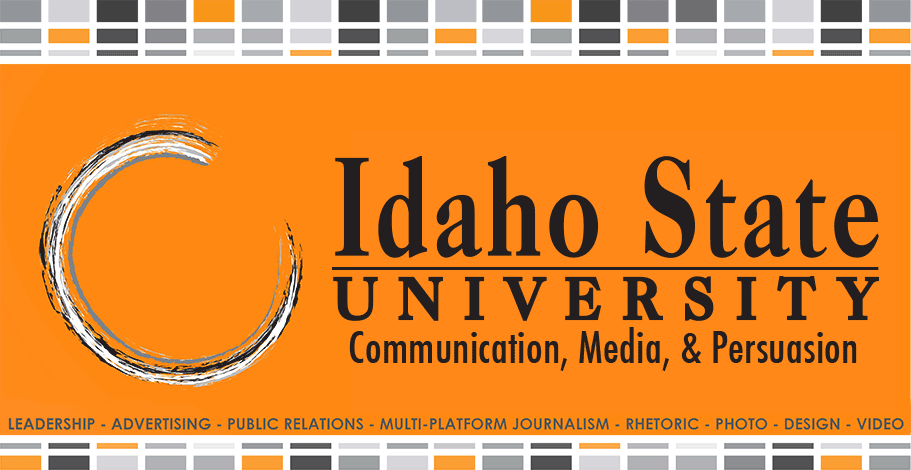

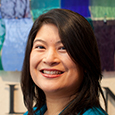
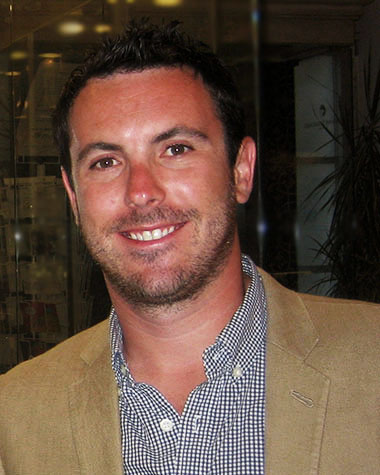 Dr. Zac Gershberg
Dr. Zac Gershberg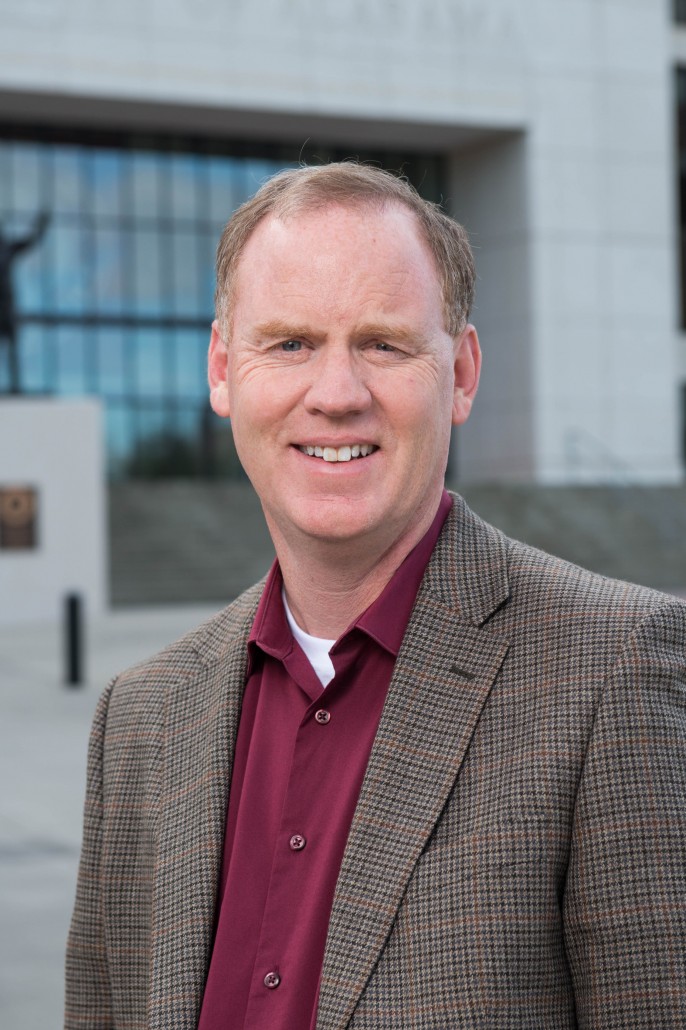 Tuscaloosa, AL --Dr. Andrew Billings is a professor in the Department of Journalism and Creative Media, holds the Ronald Reagan Chair of Broadcasting, and serves as the Director of the Program in Sports Communication at the University of Alabama. He earned his Ph.D. from Indiana University and served as chair of NCA's Mass Communication division in 2009-2010.
Tuscaloosa, AL --Dr. Andrew Billings is a professor in the Department of Journalism and Creative Media, holds the Ronald Reagan Chair of Broadcasting, and serves as the Director of the Program in Sports Communication at the University of Alabama. He earned his Ph.D. from Indiana University and served as chair of NCA's Mass Communication division in 2009-2010. 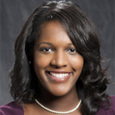
 Vice Chair-Elect / Awards
Vice Chair-Elect / Awards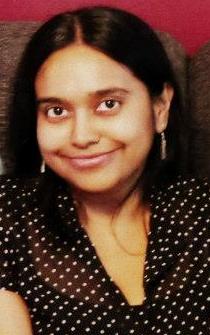
 Secretary
Secretary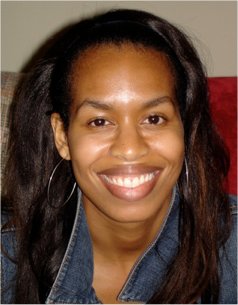 Secretary-Elect
Secretary-Elect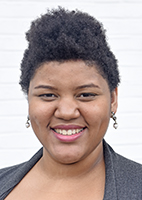 Graduate Student Rep.
Graduate Student Rep.
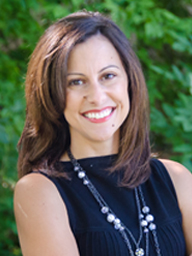 First Vice-Chair
First Vice-Chair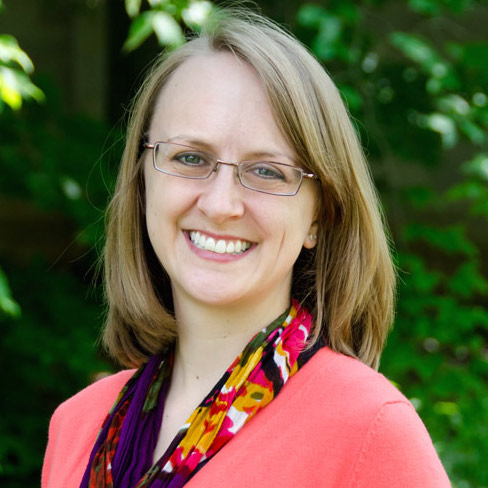 Second Vice-Chair
Second Vice-Chair 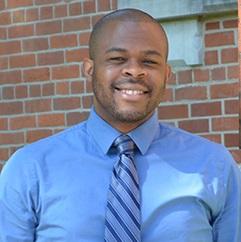 Chair-Elect
Chair-Elect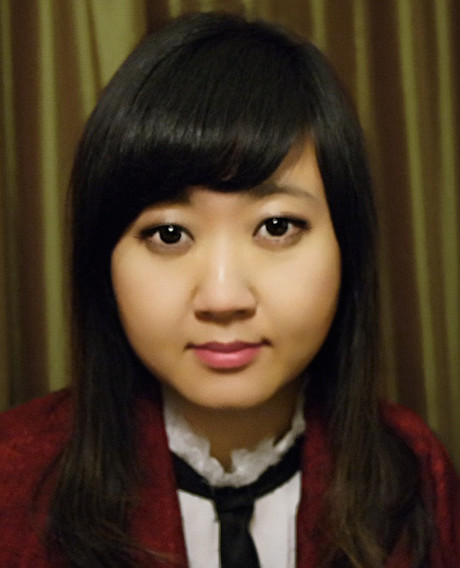 Nominations Committee
Nominations Committee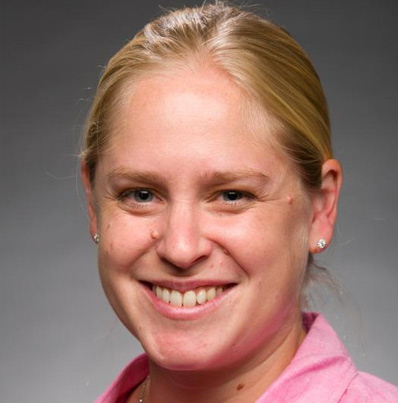 Nominations Committee
Nominations Committee  Nominations Committee
Nominations Committee
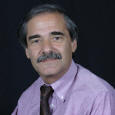
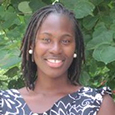 Legislative Assembly
Legislative Assembly